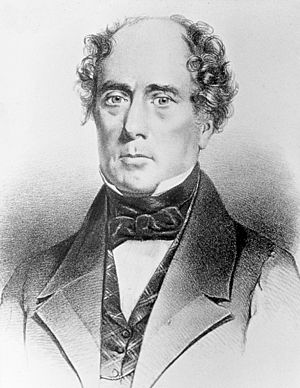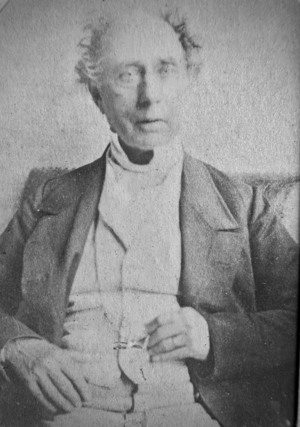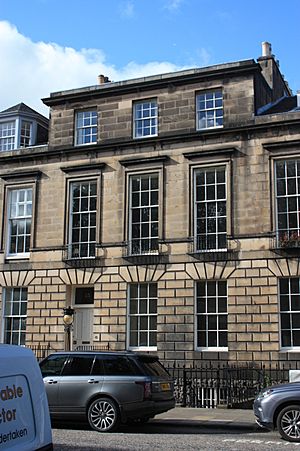George Ballingall facts for kids
Quick facts for kids
George Ballingall
|
|
|---|---|
 |
|
| Born | 2 May 1780 Forglen, by Bogton, Banffshire, Scotland
|
| Died | 4 December 1855 (aged 75) Blairgowrie, Perthshire, Scotland
|
| Nationality | Scottish |
| Citizenship | Great Britain |
| Alma mater | University of St Andrews University of Edinburgh |
| Occupation | Physician Surgeon |
| Employer | Army Surgeon (1806) Army Surgeon in India (1815–18) Surgeon, 33rd Foot (1818–23) Practicing Physician and Surgeon, Edinburgh Lecturer in Military Surgery, Edinburgh University (1823) Professor of Military Surgery, Edinburgh University (1823–55) |
Sir George Ballingall (born May 2, 1780 – died December 4, 1855) was a very important Scottish doctor and surgeon. He became a special professor of military surgery at the University of Edinburgh. Military surgery is a type of medicine that focuses on treating injuries and illnesses that happen during wars.
Contents
Early Life and Education
George Ballingall was born in a place called Forglen in Scotland. His father was a minister, which is a type of religious leader. George went to two famous universities in Scotland. First, he studied at the University of St Andrews. After that, he went to the University of Edinburgh. He earned his degree as a doctor in 1803. While he was studying, he also helped a teacher named John Barclay. John Barclay taught about anatomy, which is the study of the human body.
Career in the Army
After finishing his studies, Ballingall joined the army. In 1806, he became an assistant-surgeon for a group of soldiers called the 1st Royals. He spent several years working in India with this group. Later, in 1815, he became a surgeon for another group, the 33rd Foot. He worked as an army surgeon until 1818.
Teaching Military Surgery
In 1823, George Ballingall started teaching at the University of Edinburgh. He became a lecturer in military surgery. At that time, Edinburgh was the only place in the United Kingdom that taught this special type of surgery. It was very important to teach military surgery because many soldiers had been hurt in recent wars.
Just two years later, in 1825, Ballingall became a full professor of military surgery. He worked very hard in this job for 30 years. He taught many students until he passed away.
Important Achievements
Sir George Ballingall received a special honor in 1830. He was made a knight by King William IV. This means he was given the title "Sir" before his name.
He also lived in a nice house in Edinburgh. His address was 13 Heriot Row. In 1836, he was chosen to be the President of the Royal College of Surgeons in Edinburgh. This was a very important position for a surgeon.
He passed away in 1855 at his home in Blairgowrie, Scotland.
 | Emma Amos |
 | Edward Mitchell Bannister |
 | Larry D. Alexander |
 | Ernie Barnes |



